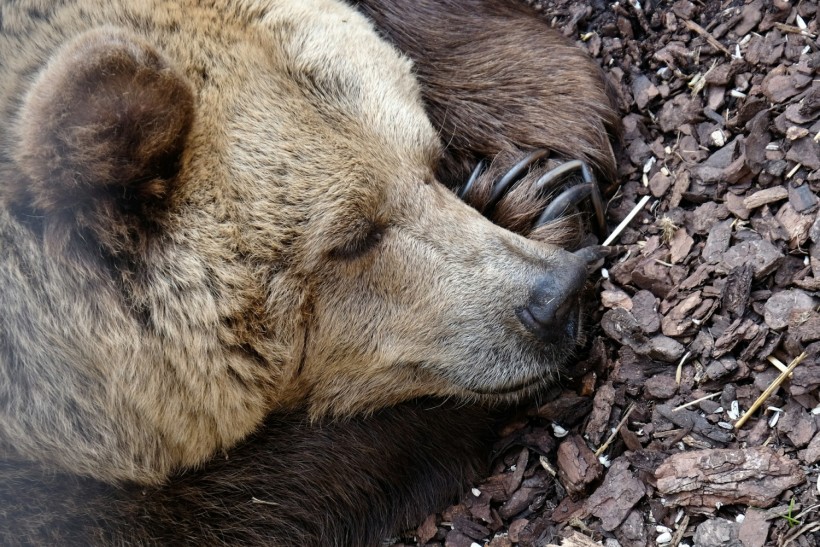Bear 178, nicknamed “Nakoda,” is a famed white grizzly bear in Canada. She rose to fame back in 2020 after being spotted by locals at Banff National Park in the Canadian province of Alberta. However, earlier this month, an incident of wildlife-vehicle collision claimed the lives of the blond bear and her two cubs. The death of Nakoda sparked an outcry among wildlife advocates and conservationists.
Calling for better wildlife conservation and protection, the death of Nakoda the grizzly bear, and her cubs sent a shockwave to the wildlife community. The matriarch bear and her younglings died two days apart after being struck by vehicles along a highway in the same area. Nakoda’s death is one of the dozens of local bear mortalities in several national parks across Canada in recent years.
Nakoda the Grizzly Bear Dies

The rare white grizzly Nakoda has been reported dead in Yoko National Park, just two days after her cubs met the same fate of being victims of a wildlife-vehicle collision.
According to local reports, the blond grizzly bear was struck around 12 hours after her cubs were struck and killed in the area. Within 24 hours, Nakoda on Saturday, June 8, succumbed to her death from the road traffic collision.
According to a recent statement by James Eastham, a spokesperson from Parks Canada, Nakoda was shocked by a passing train before running in front of two vehicles along the Trans-Canada Highway last Thursday, June 6. Eastham added that one of the vehicles was able to evade Bear 178, but the second vehicle struck her, as cited by local sources on Thursday, June 13.
Local authorities believe Nakoda died from internal injuries.
Following the fatal wildlife-vehicle collisions in Yoko National Park, a number of people mourned the death of the beloved bear, and animal advocates expressed the need to do more efforts to protect the animals.
Also Read: Wildlife Crossings Reduce Wild Animal Collisions by Up to 90%, Research Says
Wildlife-Vehicle Collisions
Wildlife-vehicle collision is a major cause of death among wild animals, including bears, not only in Canada but also in the United States and worldwide. According to wildlife experts, these vehicular collisions are manifested by the proximity between road infrastructure and natural habitats, ecosystems of wildlife. As a result, conservation efforts include the building of animal crossings, also called wildlife crossings.
The construction of roads and highways in areas once a natural habitat of wild animals is a recipe for fatal accidents, according to experts. In a 2020 research paper, scientists reviewed a total of 645 studies about wildlife-vehicle collisions, abbreviated as WVC or WVCs. The collective data showed that the risk of such collisions increases due to road width, proximity to forest, or temporal factors.
One of the several proposed solutions against WVC is the creation of animal crossings. According to the World Wildlife Fund, the use of wildlife crossings or bridges can benefit local ecosystems and keep animals away from dangerous roads and highways.
Related Article: Despite Outcry, Giant Bear Breaking Into Homes in California May be Killed to Protect Public
© 2024 NatureWorldNews.com All rights reserved. Do not reproduce without permission.

